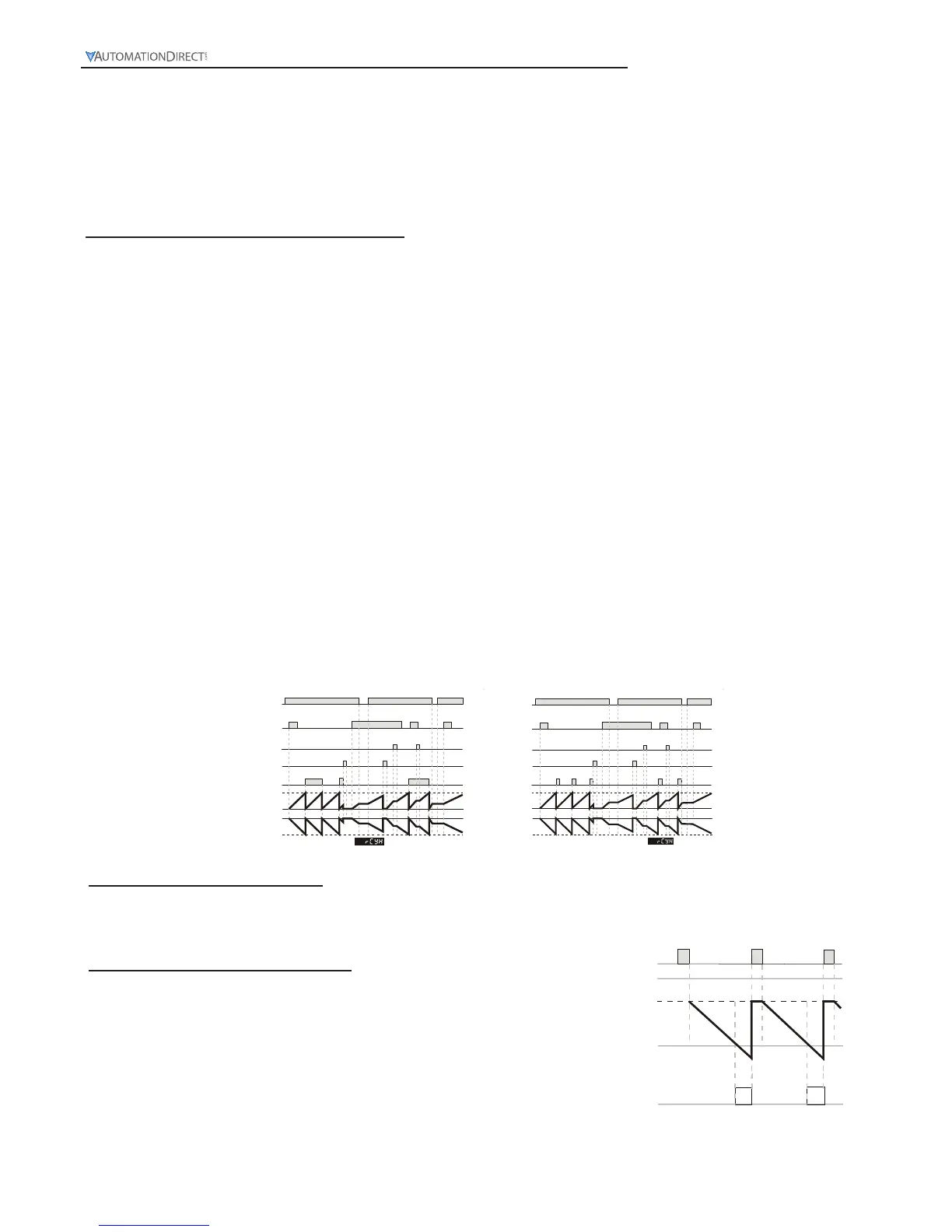Digital Counter / Timer / Tach User Manual, 1st Ed.
1-800-633-0405
4-78
Timer + Counter Mixed Mode
In Timer + Counter Mixed Mode, timer period setting value SV1 controls Output 1 and counter setting value SV2 controls
Output 2. Output 1(Timer) will turn ON momentarily for the time set in the output pulse width parameter (
tout1
) or will be
maintained ON (
tout1
set to 0.00). Output 2 (Counter) will turn ON momentarily for the time set in the output pulse width
parameter (
tout2
) or will be maintained ON depending on the output mode selected.
Repeat Cycle HOLD (
rCyH
)
With power applied to the CTT, the leading edge of an input signal at START will begin the timing period setting value SV1
timing up or down based on parameter (
t modE
). At the end of the timing period, the timing period will reset and repeat auto-
matically.
If the output pulse width parameter (
tout1
) is set to 0.00, Output 1 will turn ON at the end of the first timing period, turn
OFF at the end of the next timing period, turn ON at the end of the next timing period, etc.
If the output pulse width parameter (
tout1
) is set to >0.00, Output 1 will turn ON momentarily for the time set in the output
pulse width parameter (
tout1
) at the beginning of the each timing period.
The trailing edge of the “start” signal has no effect on the output or timing period.
The leading edge of a “reset” input signal at RST1 will turn OFF Output 1, reset the timing period and prohibit the start of a
new timing period. The “reset” signal minimum pulse width is set by reset pulse width parameter (
rtSr
). The leading edge of
a new “start” signal is necessary to restart the cycle.
The leading edge of an “pause” input signal at GATE will pause the timing period after it has been started. The timing period
will continue after the trailing edge of the “pause” (Gate) signal.
When power is removed, Output 1 will turn OFF. The last state of the output and the last value of the current timing period will
be “stored” when power is removed. When power is reapplied the output will return to its last state and timing will resume from
the last value of the timing period by the leading edge of a new “start” signal.
Counter Input Mode:
Mode F (
F
)
When the count present value PV counts down to 0, Output 2 will
turn ON. The count PV will continue to decrement with each input
signal.
The leading edge of a “reset” input signal at RST1 will turn Output 2
OFF, reset the count PV to the count setting value SV2, and prohibit
an input signal from decrementing the count PV. The trailing edge of
the “reset” signal at RST1 enables counting to begin.
The “reset” signal minimum pulse width is set by reset pulse width
parameter (
rtSr
).
Counter Output Modes:
Counter Input Mode - Counting Down (
down
)
Each leading edge of the input signal at CP1 will decrement the count present value PV by 1.
Timer+Counter Mixed Mode
OUT2
TIMER + COUNTER
Counter Input Mode DOWN
